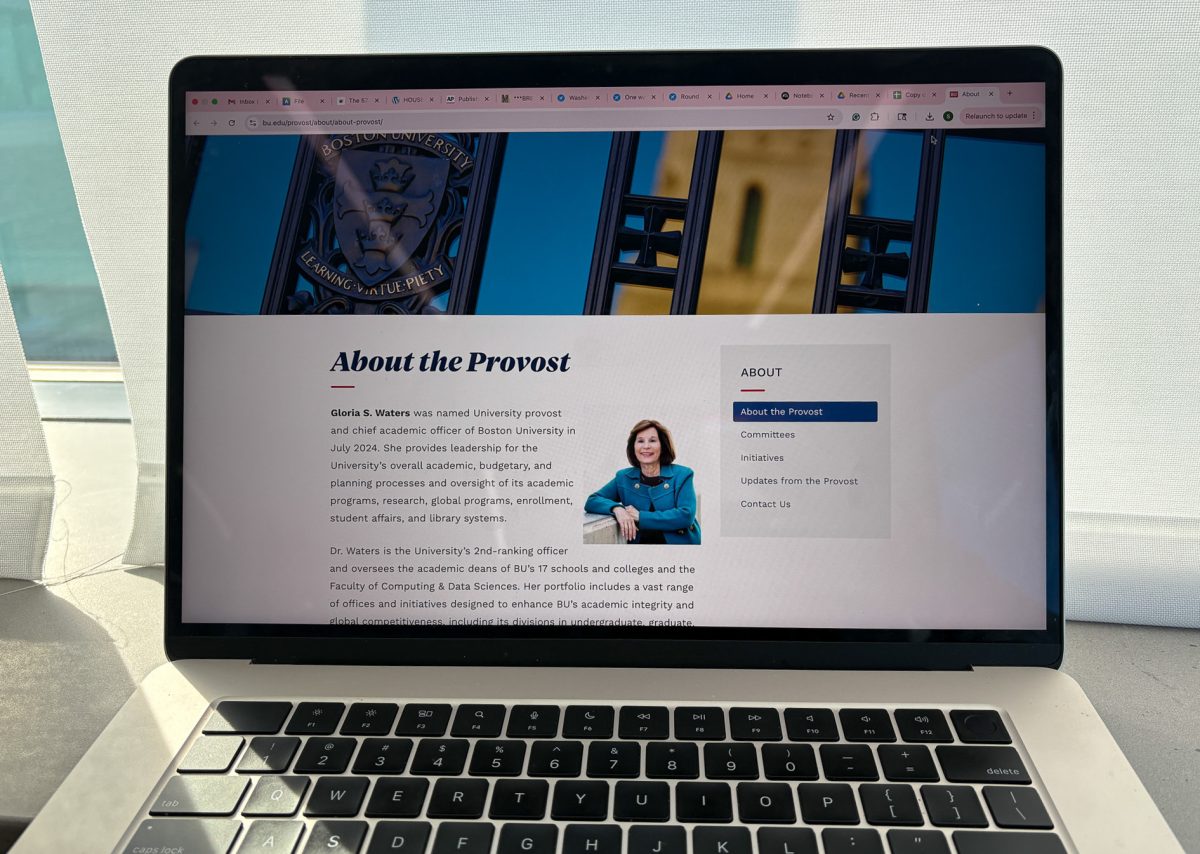
Boston University is working to improve its classroom moderator programming with a new app that will resolve issues with communication and organization. However, students and faculty say it is too early to deem it a success.
Classroom moderators help ensure hybrid classes can proceed smoothly by monitoring the Zoom and assisting professors with technical issues, according to the BU TechWeb site.
BU spokesperson Colin Riley wrote in an email BU Information Services and Technology designed a new scheduling method for quick room and time changes and implemented a new training program for in-person and remote use.
The Learn from Anywhere classroom moderator program formerly used Google Spreadsheets for shift assignments, but it transitioned to the Sling app this semester. Sling is used for messaging, scheduling employee hours and other functions.
Additionally, the moderator training updated the Fall Blackboard modules with quizzes and information, “in-person” classroom technology training was expanded, and classes of all sizes can now acquire moderators, according to Riley.
Robert Buchwaldt, an assistant research professor in the College of Arts and Sciences, said there is more consistency with moderators now than compared to the Fall when courses would receive different moderators each day. However, he said he still sees flaws in the program he hopes will be resolved soon.
“I’m happy with moderators and the students who are actually putting the time and the effort in,” Buchwaldt said, “but it’s a logistic issue.”
Classroom moderator Alexander Stephan, a junior in the College of Fine Arts, said last semester was “kind of a mess,” but approves of IS&T’s decision to begin using Sling.
“It’s still a little early on in the experience to say whether or not it’s working better,” Stephan said, “just simply because the moderators and the brass are getting used to it still.”
Stephan added the “efficiency” of communication still needs improvement. He said although he is accustomed to the stress of working in an unorganized environment, he wishes this were not the case.
“It’s just a lot of slack that I have to pick up as a moderator to make up the extra mileage for their struggles to do it,” Stephan said.
Classroom moderator Emily Cobb, a junior in the College of Arts and Sciences, wrote in an email “communication is about the same” as it was in the Fall. Responses to emails have been more “proactive,” she wrote, but she does not believe much has changed otherwise.
“The scheduling issues and communication issues are still there and very prominent,” Cobb wrote.
CAS and CFA junior and classroom moderator Linsy Wang said scheduling shifts has been a hassle both semesters, and the program could improve by establishing shift sign up deadlines.
“Last semester, during the first week of classes, people still wouldn’t have final shifts yet,” Wang said.
However, some moderators, such as CAS junior Mikey DeDona, resigned because of issues he faced with the program last semester, such as not having the ability to schedule ten hours of work per week.
“The amount of stress that this uncertainty and this poorly managed bureaucratic end is causing me is not worth the three hours of money I can make during an especially stressful semester,” DeDona said.
Stephan said the program has always been responsive when he has brought up his concerns.
“They’ve always dealt with me in a kind fashion,” Stephan said, “and a fashion that made me feel like I was being heard.”
Regardless of his own circumstances, Stephan said he acknowledges not all moderators have had the same experience.
Stephan said he commends IS&T for their efforts to improve programming.
“They are doing everything in their power to make this run smoothly,” Stephan said, “but sometimes it falls short for some people.”
Nick Kolev, campus section editor, is a classroom moderator. He was not involved in the editing of this article.
























































































































